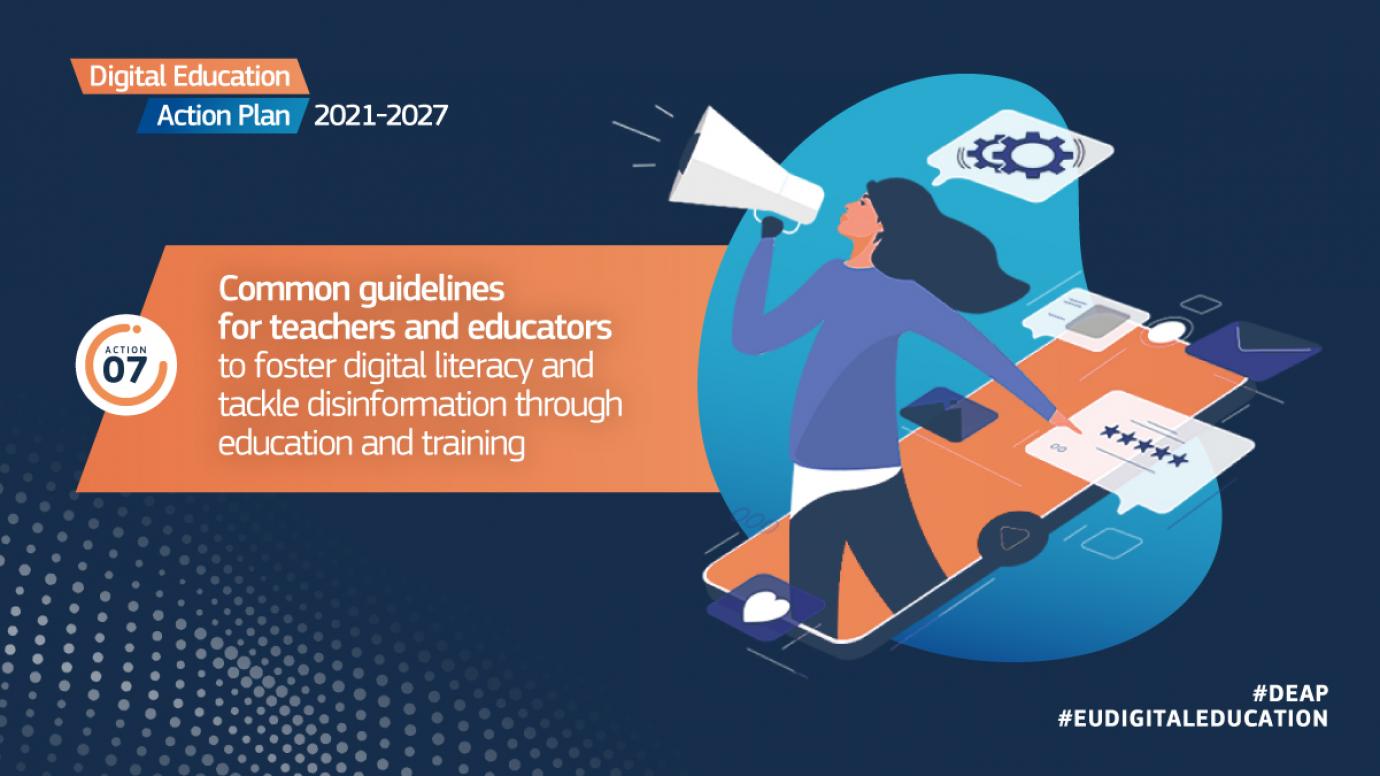Digital literacy has never been as important as in today’s increasingly digitalised world.
To navigate today’s ever-changing digital and information landscape, people need to be confident, knowledgeable and critical.
Education and training play a crucial role in equipping citizens with the critical thinking skills they need to exercise judgment in the online world, especially in the context of algorithms, ‘information bubbles’ and ‘echo chambers’.
Digital literacy and disinformation challenges
The spread of disinformation and harmful content are increasing and putting a strain on our democracies and individual wellbeing.
Research shows that:
- 36% of young people in the EU verified online content (Eurostat, 2024)
- Only 73% of young people believe that education has equipped them with the digital skills to identify disinformation (Eurbarometer, 2024),
- 43% of 14-year-olds do not reach the basic level of digital skills (ICILS, 2023)
The European Commission’s public consultation on the Digital Education Action Plan identified 3 essential skills for digital literacy:
- identifying facts from fake information
- managing information overload
- navigating safely online
Key activities
In 2022, the Commission published guidelines to help teachers and educators promote digital literacy and address disinformation through education and training.
The guidelines are designed for primary and secondary teachers with or without specialist knowledge of digital education. They provide hands-on guidance, including practical tips and activity plans.
They are accompanied by a final report which brings together main findings and recommendations.
The guidelines and the final report were developed with the support of an informal Commission expert group. Its members bring together expertise from the education and training community, academia, broadcasting, the private sector and others.
Expected results
- better public awareness and knowledge regarding disinformation
- a broader understanding of digital literacy achieved through education and training
- responsible and safe use of digital technologies
Timeline
- October 2022 - publication of the guidelines and the final report of the expert group
- End of 2025 - publication of guidelines update to reflect emerging challenges and evolving best-practices
Funding
This action receives funding through Erasmus+ programme.



